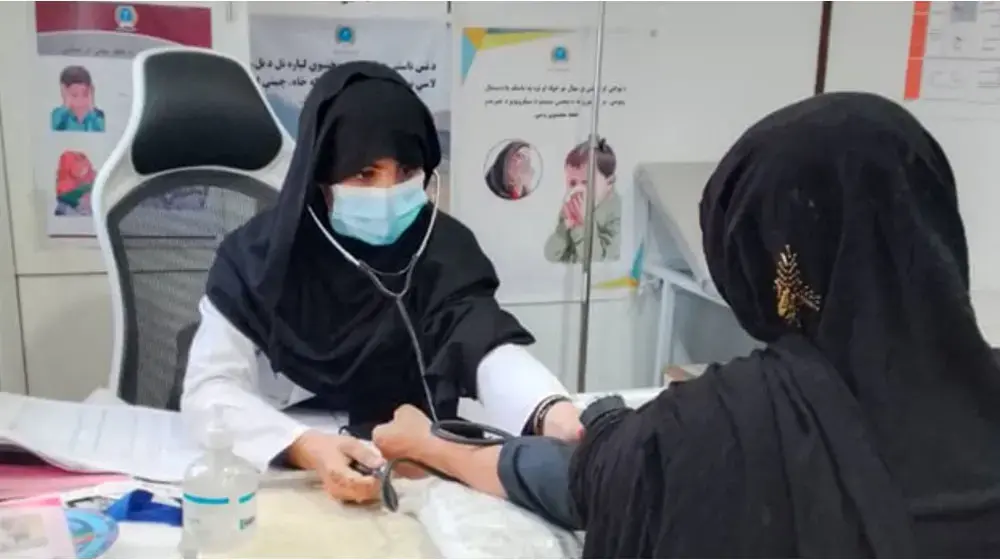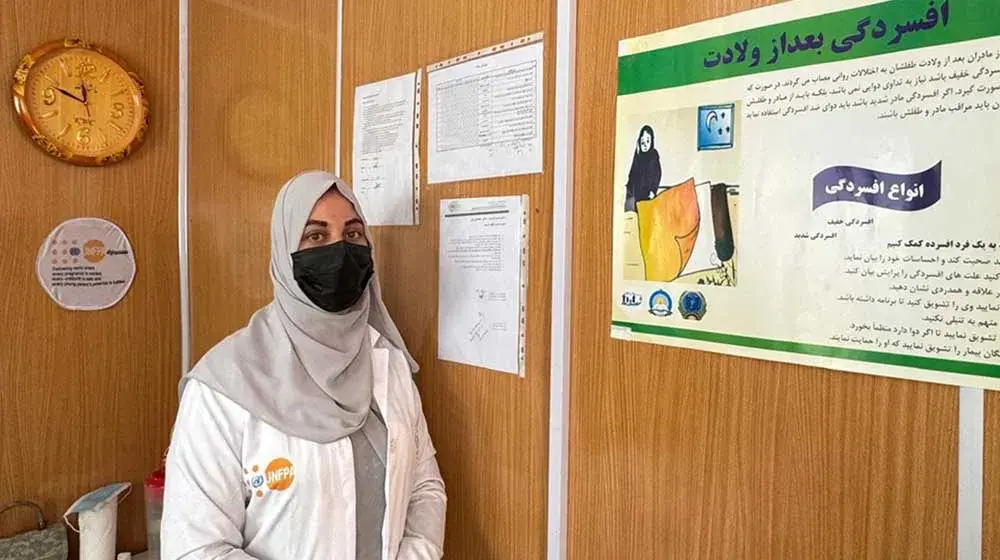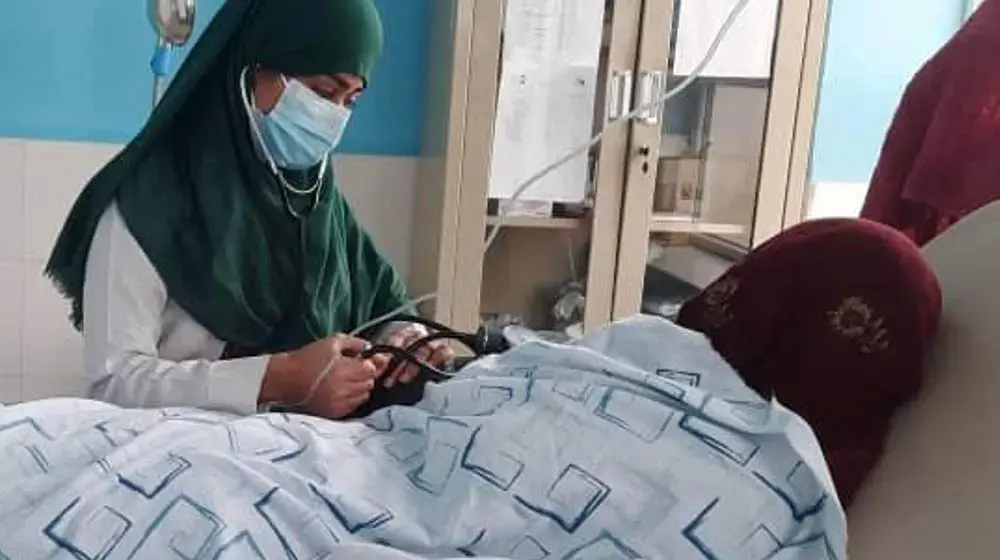KANDAHAR, Afghanistan – At the Zero Point clinic in Afghanistan’s Kandahar Province, on the border with Pakistan, midwife Zul Haja often works late into the night to assist returnees in need of urgent care. “The women are grateful for the services and treatment we provide, which weren’t easily accessible for them on the other side of the border. We make sure that they understand the importance of meeting their reproductive health needs – and the consequences of neglecting them,” Ms. Haja explained.
Ms. Haja is in charge of the maternity unit at the UNFPA-supported clinic, where women receive safe delivery referrals, family planning information, treatment for sexually transmitted infections, antenatal care and basic psychosocial support. Having faced grinding poverty and challenging living conditions as refugees, her patients these days are nearly all returnees crossing back into Afghanistan, despite the ongoing humanitarian crisis embroiling the country.
Lack of health services putting lives in danger
Sexual and reproductive health needs have spiralled for women and girls since the Taliban takeover in August 2021, with restricted access to services and limited freedom of movement. Reports show that unless urgent action is taken now, by 2025 there could be a staggering 4.8 million unintended pregnancies, along with a potential 50 per cent increase in the rate of maternal mortalities.
The risk of unintended pregnancy spikes as exploitation and sexual violence increase during crises and conflict, as protection mechanisms and social support networks break down. In Afghanistan, longstanding human rights challenges and limited ability to seek or receive reproductive health care have led to the country already having one of the highest maternal death rates in the Asia and Pacific region. Now, combined with increasingly alarming levels of hunger and malnutrition and a reported rise in protection issues, the situation risks deteriorating further.
UNFPA has launched a humanitarian appeal for $251.9 million for Afghanistan, to continue expanding services to address the reproductive health and protection needs of 9.3 million Afghans, including 2.2 million women of childbearing age, 2.3 million adolescents and 289,000 women expected to give birth this year. The appeal covers 42 percent of the United Nations target of reaching 22.1 million people with humanitarian assistance, for which the United Nations Office for Humanitarian Coordination is today holding a pledging conference aimed at funding the required $4.44 billion.
A denial of fundamental rights for millions of women and girls
Every two hours an Afghan woman dies from childbirth or pregnancy complications – in many cases due to a lack of reproductive health care, including trained midwives. Supporting the Zero Point clinic is just one of UNFPA’s interventions in the still-unfolding humanitarian crisis, with over a quarter of a million people reached across the country with reproductive health and protection services during the critical months of August to December 2021.
For 2022, UNFPA Country Representative for Afghanistan, Dr. Aleksandar Sasha Bodiroza explained: “To ensure no women or girls are left behind, we are scaling up and increasing the number of these facilities so we can reach more women, girls and young people, especially those in the most remote and underserved areas in Afghanistan.”
So far this year, UNFPA has procured more than 470 reproductive health kits containing medicine and medical supplies that will assist up to 695,000 women and girls. Mobile health teams, toll-free hotlines for midwifery assistance, family health houses, emergency clinics and protection centres are part of the response and remain operational.
As she prepares to attend to another patient, Ms. Haja glances out the window at the wall that separates the neighbouring countries. With a concerned look on her face, she says she can’t help but think about her fellow Afghan women on the other side: “I always pray that they are well out there.”





